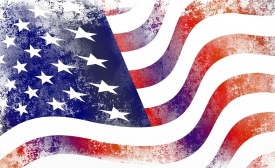u.s. department of state
Core practices of open government are eroding in the Trump Administration, with new limitations on the ability of the press to effectively question officials on U.S. foreign policy. The problem is starkly illustrated by comparing the press briefing schedules of the State Department for May 2016 and May 2017. In May 2016, the State Department held a press briefing nearly every weekday of the month, with only two exceptions. One of them was Memorial Day. In May 2017, by contrast, there was not a single State Department press briefing. The last briefing was on April 27.
As President Trump strains alliances and relationships around the world, some of the nation’s top career diplomats are breaking publicly with him, in what amounts to a quiet revolt by a cadre of public servants known for their professional discretion. On Monday, the chargé d’affaires at the American Embassy in Beijing, David H. Rank, announced his resignation after telling his staff he could not defend the Trump administration’s decision to withdraw from the Paris climate accord.
The No. 2 diplomat at the U.S. Embassy in Beijing resigned Monday, telling staff his conscience would not permit him to formally notify the Chinese that the United States is withdrawing from the Paris climate accord. David H. Rank, a career Foreign Service officer of 27 years, had been acting ambassador until former Iowa governor Terry Branstad (R) was confirmed as the new ambassador last month. Rank held a town meeting with embassy employees to explain he had offered his resignation and it had been accepted.

A new article by Ilan Manor looks at the U.S. State Department's attempts at branding America.

A new report from the U.S. Advisory Commission on Public Diplomacy examines how digital technology has changed the face of PD.

The State Department’s Office of American Spaces has released its 2016 Annual Report, citing an 11% increase in the number of visits.







